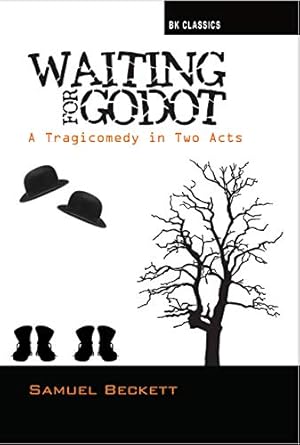Samuel Beckett was born in Dublin in 1906. He was educated at Portora Royal School and Trinity College, Dublin, where he graduated in 1927. His made his poetry debut in 1930 with Whoroscope and followed it with essays and two novels before World War Two. He wrote one of his most famous plays, Waiting for Godot, in 1949 but it wasn't published in English until 1954. Waiting for Godot brought Beckett international fame and firmly established him as a leading figure in the Theatre of the Absurd. He received the Nobel Prize for Literature in 1969. Beckett continued to write prolifically for radio, TV and the theatre until his death in 1989.Photo by Roger Pic [Public domain], via Wikimedia Commons.See more on the author's page Follow Dougald McMillanBrief content visible, double tap to read full content.Full content visible, double tap to read brief content.Discover more of the author’s books, see similar authors, read book recommendations and more.See more on the author's page Follow Rita WilenskyBrief content visible, double tap to read full content.Full content visible, double tap to read brief content.Discover more of the author’s books, see similar authors, read book recommendations and more.See more on the author's pageJohn FletcherBrief content visible, double tap to read full content.Full content visible, double tap to read brief content.Born in 1937, John Fletcher went to King Alfred School, Plõn, Germany and Yeovil School, Somerset. He then studied at Trinity Hall, Cambridge (MA) and Toulouse University (DÉS, Dr 3e Cycle), after which he taught at Durham Universi... See more
Samuel Beckett was born in Dublin in 1906. He was educated at Portora Royal School and Trinity College, Dublin, where he graduated in 1927. His made his poetry debut in 1930 with Whoroscope and followed it with essays and two novels before World War Two. He wrote one of his most famous plays, Waiting for Godot, in 1949 but it wasn't published in English until 1954. Waiting for Godot brought Beckett international fame and firmly established him as a leading figure in the Theatre of the Absurd. He received the Nobel Prize for Literature in 1969. Beckett continued to write prolifically for radio, TV and the theatre until his death in 1989.Photo by Roger Pic [Public domain], via Wikimedia Commons.See more on the author's page Follow Dougald McMillanBrief content visible, double tap to read full content.Full content visible, double tap to read brief content.Discover more of the author’s books, see similar authors, read book recommendations and more.See more on the author's page Follow Rita WilenskyBrief content visible, double tap to read full content.Full content visible, double tap to read brief content.Discover more of the author’s books, see similar authors, read book recommendations and more.See more on the author's pageJohn FletcherBrief content visible, double tap to read full content.Full content visible, double tap to read brief content.Born in 1937, John Fletcher went to King Alfred School, Plõn, Germany and Yeovil School, Somerset. He then studied at Trinity Hall, Cambridge (MA) and Toulouse University (DÉS, Dr 3e Cycle), after which he taught at Durham University (1964-66) and UEA Norwich (1966-98), first as Lecturer, then as Reader, and finally as Professor of Comparative Literature (now Emeritus). He has been visiting professor at several foreign universities, chiefly in France, but also in Denmark, Austria, Germany, Australia and Cameroon. He had begun translating from French before his retirement, an activity that continues to the present day.See more on the author's pageJames KnowlsonBrief content visible, double tap to read full content.Full content visible, double tap to read brief content.Discover more of the author’s books, see similar authors, read book recommend






